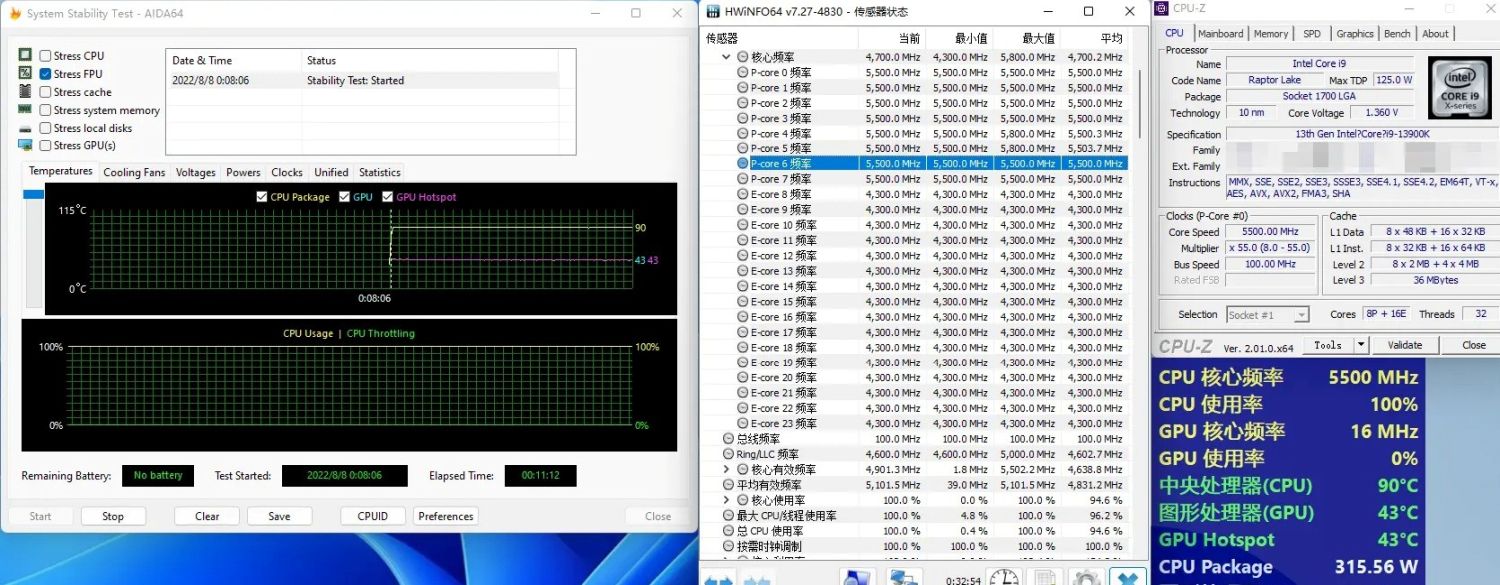The alleged performance of the 13900K comes by way of a leakster that goes by the handle OneRaichu. Based on one of the screenshots of the Cinebench R23 results that they posted, the CPU seemingly scored more than 40000 points on the program’s multi-core test or more specifically, 40616 points.
— Raichu (@OneRaichu) August 7, 2022 One thing to point out is that this particular score of the 13900K was obtained after the individual who overclocked the CPU also let the component’s power consumption run wild by allowing its power cap to draw upon an “unlimited” amount of power. To be precise, the PL1 and PL2 levels are shown to be drawing as much as 4095.9W of power, which is, to put it plainly, a whole lot of power. OF course, those are just the PL1 and PL2 states. The actual power draw from the overclocked CPU is shown as being just above 345W, which is understandable for the kind of performance that’s being obtained in the benchmark. In comparison, that sort of performance makes the juiced up 13900K approximately 48% faster than the current 12900K and around 67% faster than AMD’s own current top-dog, the Ryzen 9 5950X. In comparison, the performance of the 13900K without being overclocked is just a little over 4000 points in the same multi-core performance, although single-core performance remains virtually unchanged. For that matter, it is also obvious that this Cinebench R23 could only be obtained via overclocking the 13900K. In this case, the CPU was discovered by another overclocker, ECSM, that the processor’s P-Cores were overclocked to run at 5.8GHz. Well, two of them were, while the remaining six cores chugged along at 5.5GHz, while all 16 E-Cores were running at 4.3GHz. Intel is expected to formally announce its 13th generation Raptor Lake lineup in September, with the 13900K spearheading the charge, while availability of the CPUs are not expected until mid-October. Until then, it would be best to take this news with the usual sprinkling of flavour enhancer. (Source: Videocardz, Twitter)

